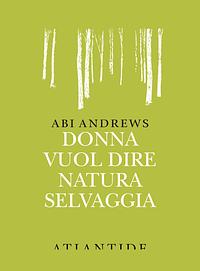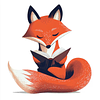Take a photo of a barcode or cover
Algo parecido a un diario de viaje ficcional, en el que Erin se lanza desde un pueblo inglés hasta Alaska, la supuesta última tierra salvaje, para conocer eso de lo que todos aquellos Hombres de Montaña como Jack London y Thoreau hablaban: lo verdadero que esconde la naturaleza. Pero es una mujer, lo que la lleva a reflexionar constantemente sobre muchas cosas a lo largo del viaje. Rachel Carson, Thoreau, bombas nucleares, la carrera espacial, Darwin, Adam Smith, el capitalismo, las culturas indígenas como los Inuit, el lenguaje, por qué la gente escala montañas, cómo nos relacionamos con los animales y con el planeta.
“Si. Cómo dijo Sylvia Plath en su diario; ¿por qué las mujeres tienen que ser relegadas a ser custodios de las emociones, cuidadoras de niños, alimentadoras del alma, el cuerpo y el orgullo del hombre? Un deseo ardiente de mezclarse con los caminantes, los marineros y los soldados, los habitués de bares, eso tenia Sylvia Plath. Ser parte de esa escena, anónima, escuchando y tomando nota. No podemos porque somos mujeres, siempre en riesgo de de ser atacadas u violentadas. ¡Ah, poder dormir a campo traviesa! ¡Viajar al oeste! ¡Caminar libres de noche!”
Me pareció entretenido al principio, luego decayó un poco y hacia el tercio final no podía parar de leer y me encantó. Tiene tantas cosas que me gustan, aunque algo desconectadas, y quizás se torna algo repetitivo y poco pulido, pero si la intención era la de conformar algo así como un diario de viaje real, sin pretensiones literarias (una ficción de tantas, lo sé) supongo que está bien así. Si el texto se corregía demasiado podría perderse esa ilusión de realidad, que resulta efectiva solo por momentos, así que no estoy segura sobre su éxito absoluto. Sin embargo, pienso que libros así son el futuro. Feminista, indefinido, complejo, contradictorio, imperfecto.
“La relación que necesitamos con el mundo natural es femenina”.
“Si. Cómo dijo Sylvia Plath en su diario; ¿por qué las mujeres tienen que ser relegadas a ser custodios de las emociones, cuidadoras de niños, alimentadoras del alma, el cuerpo y el orgullo del hombre? Un deseo ardiente de mezclarse con los caminantes, los marineros y los soldados, los habitués de bares, eso tenia Sylvia Plath. Ser parte de esa escena, anónima, escuchando y tomando nota. No podemos porque somos mujeres, siempre en riesgo de de ser atacadas u violentadas. ¡Ah, poder dormir a campo traviesa! ¡Viajar al oeste! ¡Caminar libres de noche!”
Me pareció entretenido al principio, luego decayó un poco y hacia el tercio final no podía parar de leer y me encantó. Tiene tantas cosas que me gustan, aunque algo desconectadas, y quizás se torna algo repetitivo y poco pulido, pero si la intención era la de conformar algo así como un diario de viaje real, sin pretensiones literarias (una ficción de tantas, lo sé) supongo que está bien así. Si el texto se corregía demasiado podría perderse esa ilusión de realidad, que resulta efectiva solo por momentos, así que no estoy segura sobre su éxito absoluto. Sin embargo, pienso que libros así son el futuro. Feminista, indefinido, complejo, contradictorio, imperfecto.
“La relación que necesitamos con el mundo natural es femenina”.
I have to admit that this was a slow read for me, which might just be due to the fact that I am trying to get back into reading again after my attention span has been spoiled rotten by social media. Anyway, I still enjoyed it overall and loved the connection between wilderness, feminism, science and philosophy. It felt like you were tagging along Erin on her way from England to Alaska and has definitely made me miss traveling. It was very thought provoking and I loved the beautiful writing style. I was just not too satisfied with the ending.
Not sure how I'll go with this. She was talking about being on a boat to Iceland then it suddenly jumps to someone (her?) being molested at her job when she was young. Wait, what? I was in the head space for escapism and that really threw me. I'll give it another go but if that happens again then I'm out.
I really liked this, and it was a great next choice after reading The Overstory. The journey part of the book was magnificent, and I could see where it was going towards the end but I just really wanted it to be more (though it hit some really great notes in there), even though I can’t quite articulate what was missing. Maybe I was expecting more of a change in form, as her philosophy diverged from her original stance? The break/change didn’t feel properly emphasized maybe? The thrust of the story is fantastic though. I’ll be thinking about this for a while.
5/5
Okay, I might be a little biased with this one as :
- This book is about 19-year-old Erin who, after watching (and I guess, reading ?) Into the Wild decides to make her very own journey to Alaska. I have written my master's thesis all about Krakauer's novel last year so it speaks to me.
- But, the twist is to ask whether McCandless' trip would have been different if he had been a woman. Erin leaves with the aim to film a documentary of her trip, interviewing people on their culture and on their opinion on the relationship between WOman and Wilderness.
- All the scientific and feminist talks !!!! It can probably be a little boring for those who a) do not like feminist rants, b) do not like ecology and do not believe in global-warming and c) do not understand shit about space and scientific theories about animals and nature and atoms.
I liked how Andrews tried to set some space apart for other cultures to be heard like native americans and Inuits. I also agreed with most of the things she said such as how for a very long time there wasn't a name for native americans other than "indians" (it is still kind of true for French as we say "amérindiens") and that shows a lot of how we treat/view these people, that words matter. This is one example out of the MANY MANY ones which are running through this book. It is so rich, so interesting, so clever, so empowering, so lovely as well. I thought it was going to be like Wild by Cheryl Strayed and it really wasn't (which I loved too by the way). It is a lot like McCandless's journey as told by Krakauer but also like Jack London or maybe Pete Fromm's books.
I had a hard time remembering that this was all fictional and that Erin did not exist, so I think this speaks for itself.
If I had to say two things I did not like as much it would be:
- Maybe she sometimes tried to hard to make it sound like Jon Krakauer or John Muir's books and did not make it enough of her own.
- I did not particularly liked the bit where she supposed to "film" herself, I didn't think this whole documentary thing was really interesting to be honest.
I might re-read this one in the future and I'll surely talk about it to anyone who is interested in feminism and/or ecology !
Okay, I might be a little biased with this one as :
- This book is about 19-year-old Erin who, after watching (and I guess, reading ?) Into the Wild decides to make her very own journey to Alaska. I have written my master's thesis all about Krakauer's novel last year so it speaks to me.
- But, the twist is to ask whether McCandless' trip would have been different if he had been a woman. Erin leaves with the aim to film a documentary of her trip, interviewing people on their culture and on their opinion on the relationship between WOman and Wilderness.
- All the scientific and feminist talks !!!! It can probably be a little boring for those who a) do not like feminist rants, b) do not like ecology and do not believe in global-warming and c) do not understand shit about space and scientific theories about animals and nature and atoms.
I liked how Andrews tried to set some space apart for other cultures to be heard like native americans and Inuits. I also agreed with most of the things she said such as how for a very long time there wasn't a name for native americans other than "indians" (it is still kind of true for French as we say "amérindiens") and that shows a lot of how we treat/view these people, that words matter. This is one example out of the MANY MANY ones which are running through this book. It is so rich, so interesting, so clever, so empowering, so lovely as well. I thought it was going to be like Wild by Cheryl Strayed and it really wasn't (which I loved too by the way). It is a lot like McCandless's journey as told by Krakauer but also like Jack London or maybe Pete Fromm's books.
I had a hard time remembering that this was all fictional and that Erin did not exist, so I think this speaks for itself.
If I had to say two things I did not like as much it would be:
- Maybe she sometimes tried to hard to make it sound like Jon Krakauer or John Muir's books and did not make it enough of her own.
- I did not particularly liked the bit where she supposed to "film" herself, I didn't think this whole documentary thing was really interesting to be honest.
I might re-read this one in the future and I'll surely talk about it to anyone who is interested in feminism and/or ecology !
challenging
inspiring
reflective
slow-paced
Plot or Character Driven:
Character
Strong character development:
Yes
Loveable characters:
Yes
Diverse cast of characters:
Yes
Flaws of characters a main focus:
Yes
adventurous
challenging
informative
inspiring
reflective
medium-paced
Plot or Character Driven:
Character
Strong character development:
Yes
Loveable characters:
Yes
Diverse cast of characters:
Yes
Flaws of characters a main focus:
No
4.5 because I think it could have benefitted from a bit more editing
Incredibly fresh, The Word for Woman is Wilderness is a road trip book, with Erin starting from England to trace the paths of Kerouac, Jack London and, bizarrely, the Unibomber Ted Kaczynski to Alaska. Reflecting the intellectual excitement, moral aspirations and occasional emotional obtuseness of a brilliant young adult, the novel is humorous and occasionally harrowing. Written as a diary and notes for a documentary film project, the art of the author is to allow Erin to go so deeply into her thoughts, when holed up alone in a cabin in Alaskan wilderness, that it seems she may never escape. I am thrilled to have read this book and impressed by Abi Andrews' abilities. Highly recommend.
Final score: 3.75
Any book that reminds me of a Zen koan or has aspects of mindfulness and consciousness about it, rates well on my list. This novel follows a nineteen year old (white/female) protagonist who has experienced her share of patriarchal oppression. This book is about her journey coming to terms with that and with the beauty of the North American wilderness as her backdrop to figure it all out. Self-aware of her privilege/context, this novel is a fine balance between the personal and political—as well as spiritual.
Keep this in your library if you need a dose of wild woman wisdom if you're finished with Clarissa Pinkola Estes' Women Who Run with the Wolves. Lots of insights and great reminders in this one. I especially like that it resulted in an acceptance of what is and what is not. You won't find exact answers, but hopefully something will come to the fore and that's probably what you're looking for.
Personal impact: 4/5
From not being sure about it at first, after the last page, I was very thankful I found it. Granted, it's a very common narrative and perspective (the protagonist's race/context/being)—but it's self-aware and self-reflective. We need more 21st Century female protagonists who are aware of their context, womanhood, of patriarchy and oppression/suffering in the world, and who are willing to brave the wilderness (or their wilderness) and figure out their roles in it.
Literary merit: 3.5/5
It first read a bit like a Y.A. novel (is 19 Y.A.? maybe because I'm 32 and still feeling like a new adult) on the cusp of womanhood. I'd definitely give this to my young wards and younger friends if they're trying out their womanhood and feminism for the first time. It had its moments of wisdom, but I wouldn't want it to be the first or last book they lay their brilliant hands on. And it should go without saying that I'd also want young men to read it, but with the title and contents alone—this one is not for the non-curious and faint of heart. Open your mind and heart to it. It is worth a shot.
Any book that reminds me of a Zen koan or has aspects of mindfulness and consciousness about it, rates well on my list. This novel follows a nineteen year old (white/female) protagonist who has experienced her share of patriarchal oppression. This book is about her journey coming to terms with that and with the beauty of the North American wilderness as her backdrop to figure it all out. Self-aware of her privilege/context, this novel is a fine balance between the personal and political—as well as spiritual.
Keep this in your library if you need a dose of wild woman wisdom if you're finished with Clarissa Pinkola Estes' Women Who Run with the Wolves. Lots of insights and great reminders in this one. I especially like that it resulted in an acceptance of what is and what is not. You won't find exact answers, but hopefully something will come to the fore and that's probably what you're looking for.
Personal impact: 4/5
From not being sure about it at first, after the last page, I was very thankful I found it. Granted, it's a very common narrative and perspective (the protagonist's race/context/being)—but it's self-aware and self-reflective. We need more 21st Century female protagonists who are aware of their context, womanhood, of patriarchy and oppression/suffering in the world, and who are willing to brave the wilderness (or their wilderness) and figure out their roles in it.
Literary merit: 3.5/5
It first read a bit like a Y.A. novel (is 19 Y.A.? maybe because I'm 32 and still feeling like a new adult) on the cusp of womanhood. I'd definitely give this to my young wards and younger friends if they're trying out their womanhood and feminism for the first time. It had its moments of wisdom, but I wouldn't want it to be the first or last book they lay their brilliant hands on. And it should go without saying that I'd also want young men to read it, but with the title and contents alone—this one is not for the non-curious and faint of heart. Open your mind and heart to it. It is worth a shot.




